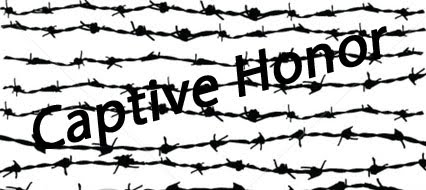

Lance P. Sijan was the first graduate of the U.S. Air Force Academy to receive the Medal of Honor, posthumously, for heroism above and beyond the call of duty. His spirit and determination inspired a fellow prisoner of war to nominate him.
Sijan was born in April 1942 and graduated from Bay View High School in Milwaukee, Wisconsin. He originally planned to attend the Naval Academy. However, he was attracted to the prestige and quality education of the Air Force school, plus he had developed a love of flying. He played football but quit the team in his senior year to concentrate more on his studies. After graduation in 1965 from the academy he attended pilot training where he received an F-4 Phantom II assignment. Eventually he was assigned to the 366th Fighter Wing, at Da Nang Air Base, Vietnam.
On November 9, 1967, while on his 52nd mission, 25-year-old Sijan ejected from his F-4C after it was hit over North Vietnam. A search-and-rescue Jolly Green helicopter radioed to Sijan that they were going to lower someone to assist him. Sijan refused to put another person in danger and asked that a penetrator be lowered instead. However, he couldn't grab the dropped steel cable and after thirty-three minutes the rescue team, facing heavy enemy fire, had to depart.
Even with no food and very little water, Lance managed to avoid capture for forty-five days. Because of a serious compound fracture of the left leg, he was unable to walk but did manage to pull himself backward through the jungle. After his initial capture, in spite of the broken leg and now a skull fracture and mangled right hand, he was able to escape. Once recaptured he was taken to Vinh and thrown into a bamboo cell. He was 'interrogated' repeatedly and, despite his captor’s technique of twisting his damaged right hand, he refused to disclose any information but his name.
Sijan was soon moved to a POW camp at Hanoi. Even in his emaciated condition, he attempted more escapes, all meeting with failure. His physical condition continued to weaken without proper food or medical attention. In January 1968, he developed additional respiratory problems including pneumonia. After many months of ill treatment, his health broke. Sijan was removed from his cell during the night of January 21, 1968 and, according to his Vietnamese captors, died the following day at Hoa Lo's "Hanoi Hilton."
He was promoted posthumously to captain on June 13, 1968. On March 4, 1976 President Gerald Ford presented the Medal of Honor to his parents, Sylvester and Jane Sijan.
The U.S. Air Force Academy named Sijan Hall, a cadet dormitory, in honor of him on May 31, 1976. Additionally, the U.S. Air Force honors Air Force personnel who exhibit the highest example of professional and personal leadership standards with the Lance P. Sijan Award.
Medal of Honor Citation
Rank and organization: Captain, U.S. Air Force, 4th Allied POW Wing, Pilot of an F-4C aircraft. Place and date: North Vietnam, 9 November 1967. Entered service at: Milwaukee, Wis. Born: 13 April 1942, Milwaukee, Wis. Citation: While on a flight over North Vietnam, Capt. Sijan ejected from his disabled aircraft and successfully evaded capture for more than 6 weeks. During this time, he was seriously injured and suffered from shock and extreme weight loss due to lack of food. After being captured by North Vietnamese soldiers, Capt. Sijan was taken to a holding point for subsequent transfer to a prisoner of war camp. In his emaciated and crippled condition, he overpowered 1 of his guards and crawled into the jungle, only to be recaptured after several hours. He was then transferred to another prison camp where he was kept in solitary confinement and interrogated at length. During interrogation, he was severely tortured; however, he did not divulge any information to his captors. Capt. Sijan lapsed into delirium and was placed in the care of another prisoner. During his intermittent periods of consciousness until his death, he never complained of his physical condition and, on several occasions, spoke of future escape attempts. Capt. Sijan's extraordinary heroism and intrepidity above and beyond the call of duty at the cost of his life are in keeping with the highest traditions of the U.S. Air Force and reflect great credit upon himself and the U.S. Armed Forces.


No comments:
Post a Comment